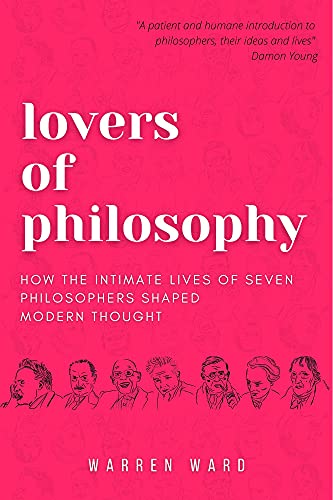Lovers of Philosophy: How the Intimate Lives of Seven Philosophers Shaped Modern Thought
amazon.com
Lovers of Philosophy: How the Intimate Lives of Seven Philosophers Shaped Modern Thought

This experience of Derrida’s work reflects a central idea in his philosophy – that meaning isn’t permanently housed somewhere out beyond language, but is endlessly suspended, recreated, and altered by language itself.
Sylviane, who hailed from a family of immigrant Poles, would go on to become a professor at Paris’s School for Advanced Studies in the Social Sciences, and have a stellar career as philosopher, feminist thinker, and author. She would also become a leading figure in a branch of French feminism known as differentialism. This strand of feminism
... See moreIn Of Grammatology, he explained: From the moment there is meaning there is nothing but signs. We think only in signs.[339] This realisation led Derrida to two conclusions. The first, as we have heard, was his belief that all philosophical (and other) texts to date have been logocentric – that is, they all contain within them an implicit, and, in
... See moreDerrida went on to argue that philosophy – in fact the whole Western metaphysical tradition including religion, science, politics, psychology, and other disciplines of thought – has always wrongly assumed there is something beyond words. Over history this belief in an unchanging and solid presence that transcends language has been conceptualised in
... See moreDerrida’s radical assertion was that words, rather than referring to objects or ideas, actually construct reality, or at least our experience of it (which, as Kant had demonstrated, is as close to reality as we’ll ever get). Although such a notion, at first glance, might seem implausible and even outrageous, an examination of the history of the
... See moreAccording to the early twentieth-century linguist Ferdinand de Saussure, whose work greatly influenced Derrida’s thinking, the word ‘orange’ is an example of a sign that has two aspects to it – the word itself, which Saussure termed the signifier, and the picture of the colour orange we get in our mind’s eye, which he called the signified. A third
... See moreI’m no good for anything except taking the world apart and putting it together again.[336]
Our pursuit of pleasure has been limited in a large part by a vocabulary foisted upon us. People are neither this nor that, gay nor straight. There is an infinite range of what we call sexual behavior…[314]
In Discipline and Punish, Foucault argued that this more civilised approach to regulating prisoners’ behaviour is perhaps a worse evil than the gruesome public executions that preceded it. For Foucault, this modern, precise, systematic approach has an even more devastating effect, crushing any vestiges of dignity, independence, or individuality.
... See more